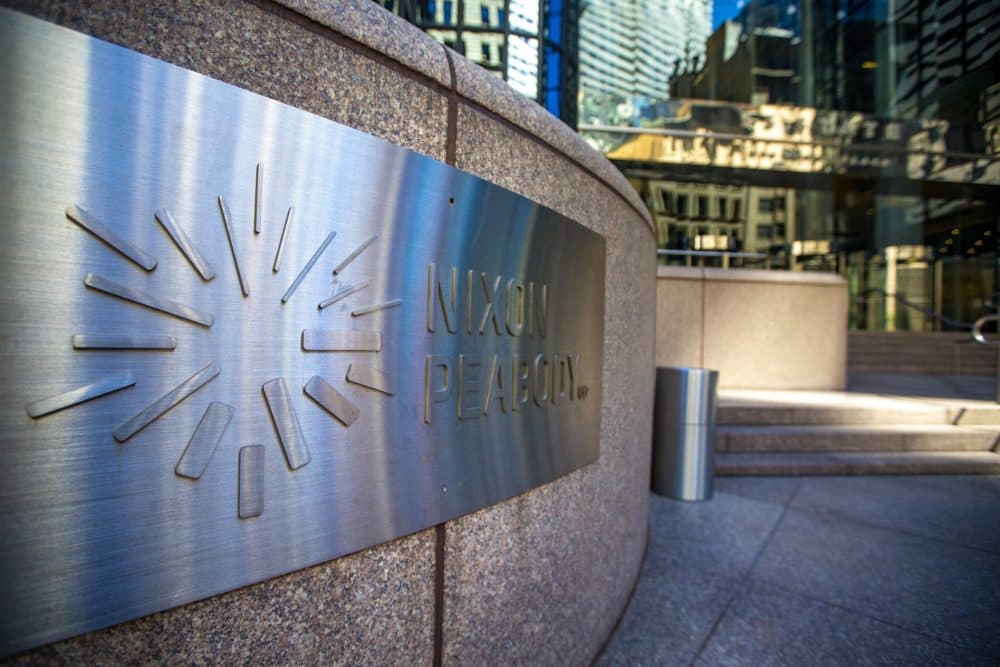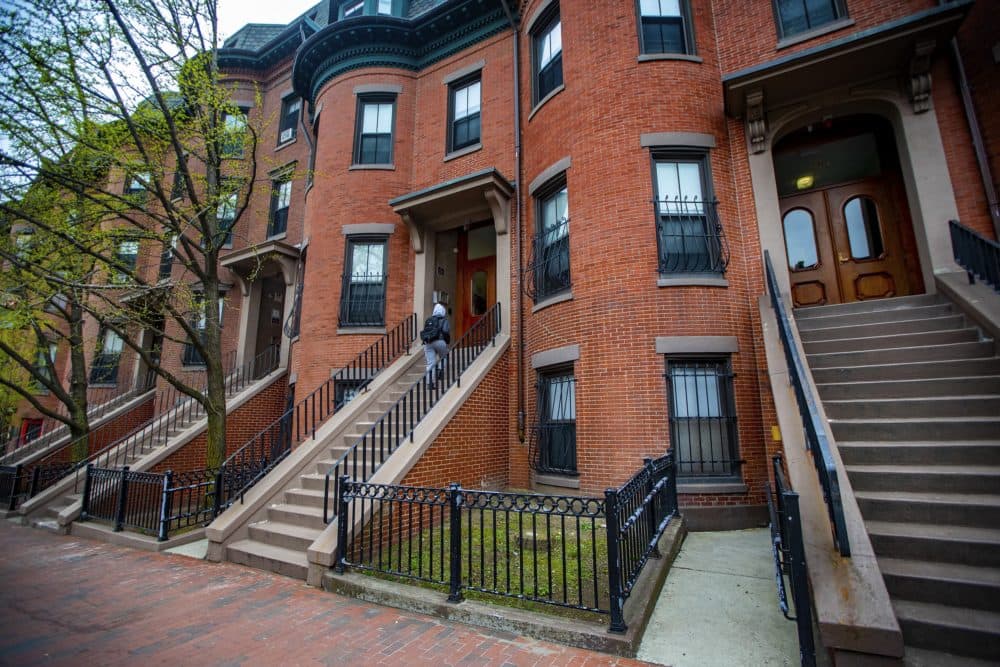Advertisement
In Big Affordable Housing Lawsuits, Boston Firm Nixon Peabody Is Taking The Side Of The Investors
Resume
The Boston law firm Nixon Peabody has built a national reputation in affordable housing — advising nonprofits and developers, churches and housing authorities. The firm boasts lawyers who’ve had a hand in “every major federal affordable housing initiative in the last 40 years.”
But Nixon Peabody also has become the go-to counsel for an opposing set of clients: investors taking aggressive moves to extract cash or control from low-income properties.
In lawsuits playing out in at least five federal courts from Boston to Detroit, Nixon Peabody represents investment companies that are challenging long-accepted terms in a taxpayer-backed program to finance housing. The firm’s litigation attorneys are seeking precedent-setting rulings that could put long-term housing affordability at risk — and drain resources from the kinds of nonprofits and developers that other Nixon Peabody lawyers profess to help.
“If it hasn’t already, it’s got to affect their business,” said Robert Rozen, a housing advocate who helped create the Low-Income Housing Tax Credit system passed by Congress in the 1980s. He and others in affordable housing expressed dismay that Nixon Peabody is working for these investors.
“It's a matter of how you want to run your business and what kind of reputation you want to preserve,” Rozen said.
Nixon Peabody declined to comment for this story. It has about 600 lawyers in 16 offices around the world and a range of practices, including in housing and what the firm broadly calls “community development.”
"If it hasn’t already, it’s got to affect their business. ... It's a matter of how you want to run your business and what kind of reputation you want to preserve."
Robert Rozen
In many cases, Nixon Peabody helps put deals together on the front end. For instance, it played a role in the nonprofit Stone House’s project to rebuild its Boston headquarters and create 32 affordable housing rental units for domestic violence victims. The firm advised on a tax-credit deal for housing in Richmond, Virginia. And last summer, it represented an arm of Catholic Charities Brooklyn and Queens Inc., to develop property for low-income seniors and homeless people.
“I’m extremely proud of this deal,” Nixon Peabody partner Joe Lynch said of the Catholic Charities project, in a press release.
At the same time, over the past few years, other lawyers at the firm have been writing the playbook on bringing property challenges at the end of investment partnerships in affordable housing.
As originally conceived by Congress, these deals were meant to attract banks and other investors to fund affordable housing, in exchange for tax breaks. After 15 years, a nonprofit running the housing is supposed to have the right to buy it at a low price, according to housing specialists; the investor is meant to move on, having pocketed many years of promised tax benefits.
But a number of investors are now taking a different view, as real estate values have climbed in cities like Boston and Seattle.
In one high-stakes case, Nixon Peabody is representing Alden Torch Financial, a Denver firm that’s in a dispute with a nonprofit housing manager in Boston’s South End, called Tenants’ Development Corp., or TDC.
As WBUR previously reported, Alden Torch is trying to stop TDC from buying 36 brownstones it has managed for decades. The nonprofit took on tax-credit investors in the early 2000s to renovate the properties, home to many seniors and Black families who would otherwise have been priced out of the neighborhood. The original financier sold its interest in the deal and it’s now one of many holdings that Alden Torch manages in its investment funds.

At a federal appeals court hearing in late July, a Nixon Peabody litigation partner, Louis E. “Le” Dolan Jr., argued that TDC breached its contract with Alden Torch, by moving forward to buy the properties without first seeking the investor’s approval.
“We are absolutely saying that they violated their contractual and fiduciary duties. We are also saying that they violated their statutory duties,” Dolan told the three-judge panel.
It’s one of the tactics being used in these cases, according to lawsuits reviewed by WBUR, to claim that a housing manager violated its duty to the partnership by trying to buy the property. In court filings, Nixon Peabody claimed at one point that Alden Torch was unaware of TDC’s right under the contract to acquire the buildings once another offer came in. The investment firm is seeking millions of dollars in damages, in a costly legal battle for TDC.
TDC officials believe it’s their right, under the tax-credit contract, to take ownership of the brownstones at a low price (paying off any outstanding debt and taxes owed). Local housing officials and some ranking members of Congress agree.
If Alden Torch wins the case, the units would have to stay affordable for at least 15 more years (for a total of 30), under state rules. But there’s a risk that the firm could eventually sell the buildings or turn them into market-rate apartments.
This is just one example in which Nixon Peabody clients have competing interests — investors looking for a win and housing groups watching with alarm as a nonprofit fights to hang on to its low-income properties.
Three experts on the practice of law interviewed by WBUR said it’s not uncommon at large firms for such a scenario to occur. It rises to the level of an ethical conflict if there is a “significant risk” that a firm’s advocacy on behalf of one client will “materially limit” its effectiveness for another client, according to Stephen Gillers, a professor at the New York University School of Law.
Even if a firm decides it doesn’t have an ethical conflict, it could still face a business conflict, where it must weigh whether representing certain clients could hurt its chances of being retained by clients with opposing interests in different cases.
Nixon Peabody has not been shy about touting its successes on behalf of investment clients. In August 2019, Dolan, in a post on the firm’s website, wrote that a judge’s decision in the Eastern District of New York “provides a very effective roadmap for litigating these disputes in federal courts.”
That case was RiseBoro Community Partnership Inc. v. SunAmerica Housing Fund 682. RiseBoro is a nonprofit housing developer in Brooklyn, which had planned to buy a 34-unit, low-income property after a tax credit deal ended with SunAmerica, a unit of Wall Street financial giant American International Group Inc. But SunAmerica balked, and planned to block the purchase, so RiseBoro sued.
Nixon Peabody won a first round for SunAmerica in that case, when Judge Raymond J. Dearie ruled that the deal should follow New York state contract law. The case is now under appeal.
Most of these battles hinge on fuzzy contract language, where investors have found an opportunity to make hay, according to more than a dozen housing advocates and lawyers.

Specifically, these investors disagree with low-income housing groups on how a “right of first refusal” works in partnership agreements. Under the law that established the program, that right was meant to allow nonprofits to acquire and control their low-income properties for the long term, according to housing specialists. But some investors are trying to get around that, by challenging details of how nonprofits go about exercising the right of first refusal.
U.S. Sen. Ron Wyden, an Oregon Democrat who chairs the Senate Finance Committee, has written a measure to clarify the language of the statute and make clear Congress’s intent that nonprofits should have an option to buy the property. The House also is taking up the matter in the budget reconciliation bill.
Rozen, the housing specialist, concedes the original language of the law was confusingly written (as it sought to address complex tax rules) more than three decades ago. But the intent was always understood, he said. Until recently.
“It’s a new phenomenon, this outside capital — in most cases private equity capital — coming in and gaining control,” he said. It was “never contemplated and didn't exist for most of the life of the program.”
Managers of nonprofit housing have been stunned by investors changing their tunes. What was once deemed a relatively passive transaction to reap a multi-year stream of tax breaks has morphed into a real estate play.
“There was no ambiguity in the deal we made 18 years ago,” said Scott Short, chief executive of RiseBoro. “But because of some unfortunate ambiguity in the legal documents, SunAmerica is trying to rewrite history. The deal was crystal clear.”
SunAmerica parent AIG did not respond to numerous requests for comment.
New York’s attorney general filed an amicus brief on behalf of Riseboro. The conservative Southeastern Legal Foundation filed one in support of SunAmerica.
The outcome of this and other Nixon Peabody cases could hurt nonprofit housing groups with similar contracts. Outside of Detroit, at a low-income property for seniors, SunAmerica also has refused to go away, despite receiving 15 years of tax breaks — and pocketing “surplus cash” of more than $1.3 million from government-subsidized rents, according to the nonprofit’s executives and financial records reviewed by WBUR.
"It’s a new phenomenon, this outside capital — in most cases private equity capital — coming in and gaining control."
Robert Rozen
“We thought we were going to go through a very pro forma, normal process,” with SunAmerica exiting, said Roger Myers, chief executive of the nonprofit Presbyterian Villages of Michigan. “It's been far from anything like that.”
Myers said a previous tax-credit deal with another investor ended after 15 years as expected. But not this one. Presbyterian Villages approached SunAmerica a year ahead of the partnership’s slated end, officials allege, but the investment firm told them to wait.
“We waited. We waited all year,” said Brian Carnaghi, Presbyterian’s financial chief. As the deadline neared, the nonprofit made its move to buy the Southfield, Michigan, property. “We started pushing hard,” Carnaghi said.
SunAmerica sued in 2019 to block the purchase. The lawsuit, filed by Nixon Peabody, alleges that Presbyterian violated the terms of the partnership, and says the SunAmerica Housing Fund “has no interest at this time in selling the Apartment Complex.”
Myers, the nonprofit’s CEO, suspects the property has simply become more valuable than SunAmerica had anticipated. “Their allegation that we violated our fiduciary duty to the limited partnership is absurd.”
This dispute carries an added sting: Presbyterian Villages actually owned the buildings before entering the tax credit deal with SunAmerica. So now, the nonprofit alleges, SunAmerica is trying to claim equity that Presbyterian Villages had planned to put toward home health care and other services for residents as they age.
If Nixon Peabody wins the case for the investors, the properties could be sold to a new owner.
This segment aired on September 21, 2021.
